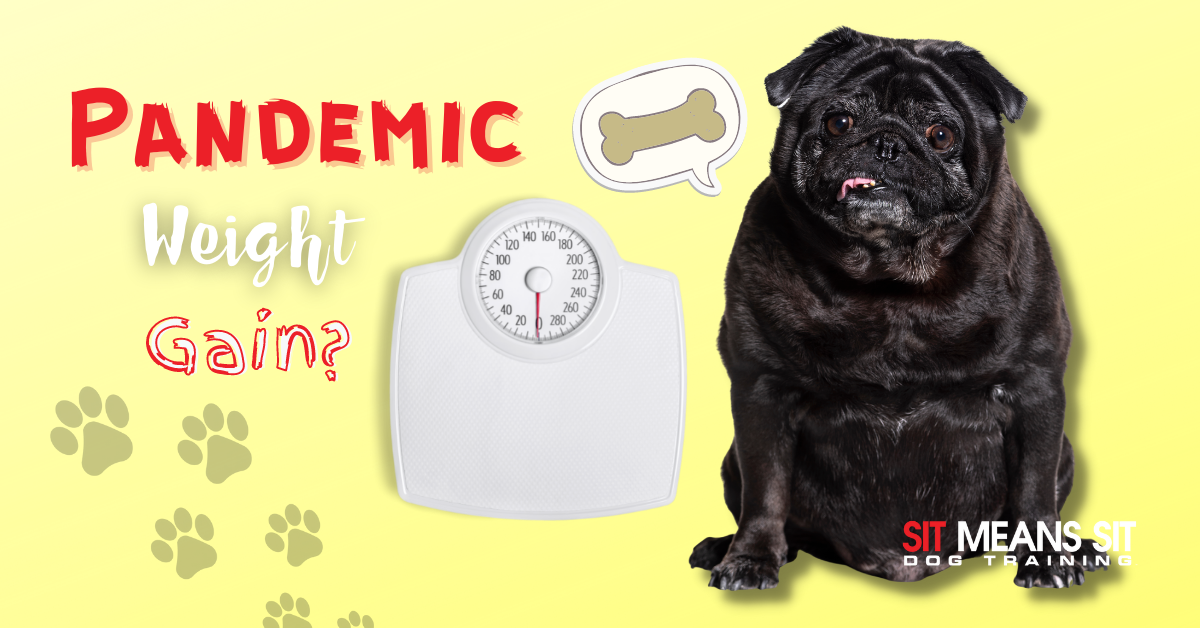
Did Your Dog Gain Weight During the Pandemic?
There’s no doubt that the recent pandemic has hit everyone hard. And our dogs have been there going through the challenges of adapting to a pandemic lifestyle with us. Whether it’s with switching to remote working or the stressful toll of staying safe at home. Both humans and dogs have had a difficult year keeping good habits alive.
Unfortunately, our dogs may have fallen accustomed to being lazy and overeating out of boredom. So has your dog been facing the pressures of the pandemic and changing lifestyles? Did they gain weight during the pandemic and lockdown? The short answer is probably! Professionals say that the pandemic has impacted the way pets eat and about ⅓ of pet owners have reported their animals becoming obese during the pandemic.
Obesity In Dogs
Dogs who weigh more than 20% of their projected body weight, for their breed and circumstances, are considered obese. Obesity is also the most common disease that can be prevented in North American dogs.
Risks
Obesity can be an extremely concerning disease for dogs. It can cause the development of other diseases related to obesity, like arthritis, and shorten a dog’s life expectancy from 6 months to 2 years. Fat being stored by a dog’s body releases inflammatory hormones and creates stress on body tissue, which can lead to a number of diseases. Dogs who are obese can be at an increased risk for developing:
- Heart disease, hypertension, diabetes, and various types of canine cancer
- Osteoarthritis and the fast deterioration of joints and cartilage
- Bladder stones
- Less heat tolerant and more prone to heatstroke
Signs Your Dog May Be Overweight
If you have noticed your dog’s eating habits changing and them gaining noticeable weight, there is an issue that needs to be addressed. To start a plan, consult your veterinarian about what an appropriate weight is, how to start your dog’s diet, and an exercise program to ease into getting more active. They will likely check for any medical reasoning for weight gain, like hypothyroidism. If the obesity is not from a medical diagnosis, then they will help you set up a plan to begin weight reduction!
A vet will assess your dog’s nutritional needs and suggest a plan to put them on a diet that is less calorically dense and involves more active exercise. Don’t forget to make sure you have the specifics and how long you should be implementing this diet change.
Treats and food portions should make up no more than 10% of your dog’s daily calories. You should check in on weight every 3 weeks and make adjustments where necessary so weight loss remains at a safe pace, rapid weight loss is never good! Once your dog reaches the goal you and your vet set for them, return for a consult on how to maintain the healthy state they’re at have them do a quick check-up.
Exercise
When you think about weight loss, you probably think about exercise. But being active doesn’t have to mean going on runs with your dog or making them play fetch for hours on end. Walking is just as effective and less impactful on their joints. Walking helps increase circulation, memory, improves sleep, energy, and weight loss! Plus, walking is a great way for you and your pooch to bond. Remember, you’re on this journey with them and they need your support!
